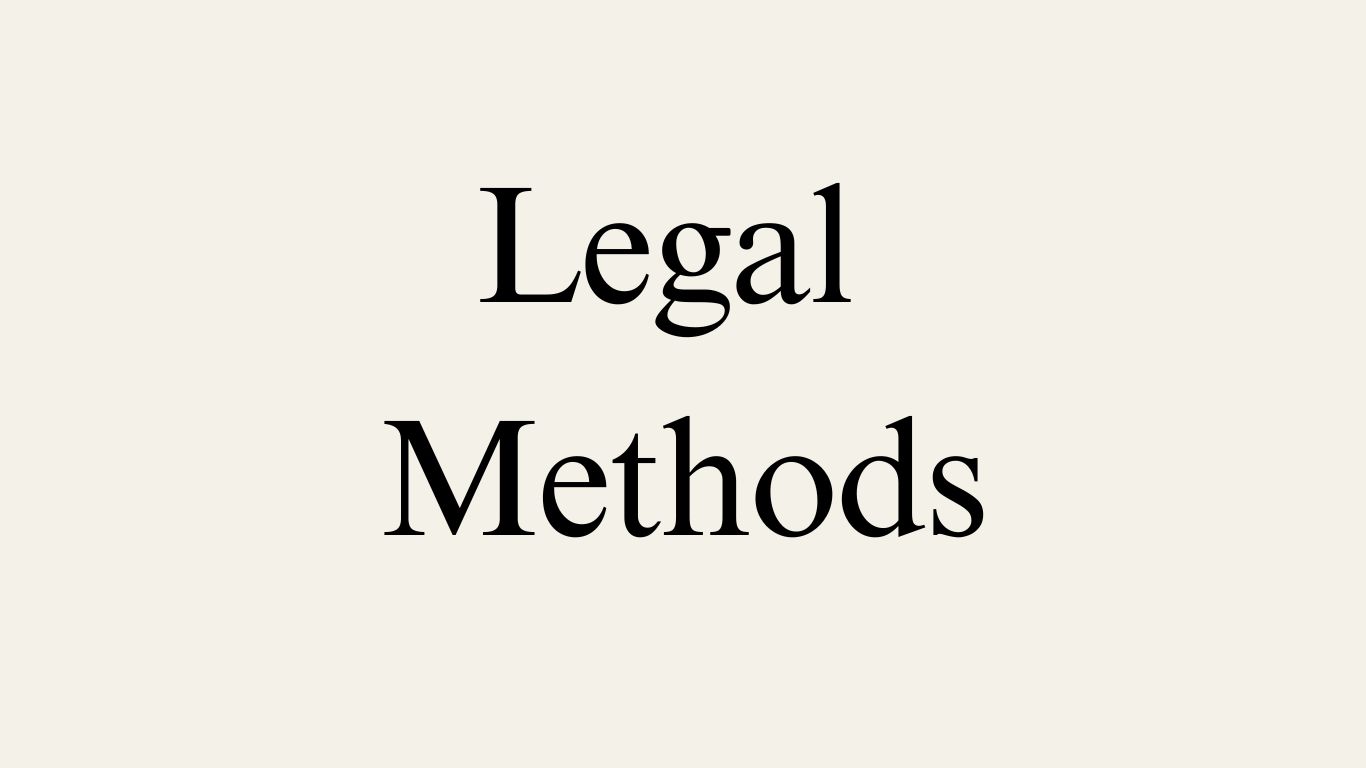Legal Methods
OBJECTIVE
The Legal Methods aims to impart the fundamental aspects of law. It further provides the basis for developing analytical skills. In par with the requirements of provisional competence, the course adapts to methods of learning law. The beginners in law will be adequately supplemented by tools of understanding on Statutes, Judgments and that of basic research.
1.INTRODUCTION TO LAW AND LEGAL SYSTEM
What is Law? – Law in relation to concepts of justice, morality, State, citizens, society and the globe – Theories of law – Schools of thought on the nature, function, sources and role of law – Custom and law – Introduction to different legal systems of the World – Common law system – Civil law system – Role and functions of the legal institutions in such diverse systems – Global Administrative Law – Global Rule of law.
2.INDIAN LEGAL SYSTEM
Overview of the Indian legal system and legal institutions – Role of the Constitution – Process of legislation – Delegated legislation – Ordinances – Rules – Regulations – Orders – Notifications – Bye laws – Customs having the force of law – Constitutional conventions – Access to Statutes and Bills – Techniques of reading and analyzing the statutes, Rules and Regulations.
3.JUDICIAL PROCESS
Hierarchy of courts – Judicial review – Stare decisis – Precedent – Law declared by the Supreme Court – Complete justice – quasi – Judicial authorities – Techniques of reading and analyzing judicial decisions – General Principles of Statutory Interpretation – Comparative judicial process – Binding nature of foreign decisions – Legal and logical reasoning.
4.LEGAL RESEARCH
Concept of Research – Objectives – Types of Research – Social Science Research – Legal Research.
5.SOCIO-LEGAL RESEARCH
Methodology – Identification of the research problem – Framing of hypothesis – research questions – Data Collection – Legal material, Statutes, Subordinate Legislation, Notifications, Policy statements – Decisional materials, Foreign Judgments, Legal databases, Reports of Commissions & Committees – Statistical and Legal analysis of data – Interpretation and implication of data – Hypothesis testing – Report Writing. Comibatore lawyers provides more details about other laws in India.
Books for Reference :
1. William J. Goode and Paul K. Hatt – Methods in social Research.
2. Adam Podgorecki – Law and Society.
3. Oaul Oliver – Writing Your Thesis.
4. Prof. Tushar Karti Saha – Legal Methods, Systems, Research.
5. S.K. Verma and Afzal Wani (Editors) – Legal Research and Methodology.
